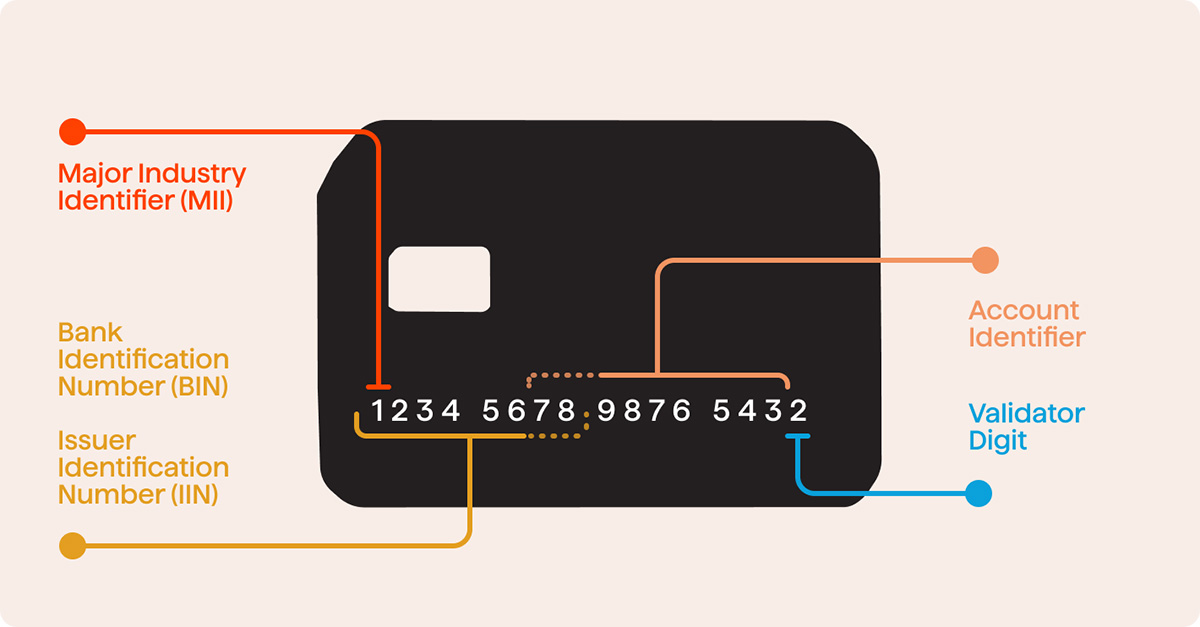

Finance
What Is A MGA Insurance Company?
Modified: December 30, 2023
Learn about MGA insurance companies and their role in the finance industry. Discover how these companies operate and provide specialized coverage to businesses.
(Many of the links in this article redirect to a specific reviewed product. Your purchase of these products through affiliate links helps to generate commission for LiveWell, at no extra cost. Learn more)
Table of Contents
- Introduction
- Definition of a MGA Insurance Company
- Role and Function of a MGA Insurance Company
- Benefits of Working with a MGA Insurance Company
- Differences between MGA and Other Insurance Companies
- Types of Insurance Products Offered by MGA Companies
- How to Become a Licensed MGA Insurance Company
- Regulations and Oversight of MGA Insurance Companies
- Examples of Prominent MGA Insurance Companies
- Conclusion
Introduction
In the world of insurance, there are various types of companies that play different roles in providing coverage and managing risk. One type of insurance company that has gained prominence in recent years is the Managing General Agent (MGA) insurance company. MGAs are intermediaries who connect insurance carriers with insurance agents and brokers, helping to facilitate the distribution and underwriting of insurance policies.
MGAs have become an integral part of the insurance industry as they bring a specialized expertise and market knowledge, allowing insurance carriers to expand their reach and access new customers. This article will delve into what exactly a MGA insurance company is, its functions and benefits, and the types of insurance products offered by these companies.
Additionally, we will explore the regulatory landscape surrounding MGA insurance companies and provide examples of renowned players in the industry. Whether you are a consumer looking for insurance options or a professional seeking to better understand the insurance landscape, this article will provide valuable insights into the world of MGA insurance companies.
Definition of a MGA Insurance Company
A Managing General Agent (MGA) insurance company is an intermediary entity that operates within the insurance industry. Unlike traditional insurance carriers, MGAs do not assume the risk of insurance policies but instead act as a bridge between insurance carriers and insurance agents or brokers.
MGAs are licensed and authorized by insurance carriers to underwrite and issue policies on their behalf. They have the authority to bind coverage, set premium rates, and handle claims within the guidelines established by the insurance carrier.
One key characteristic of a MGA insurance company is that they have a deep understanding of specific types of insurance products and target markets. This specialized knowledge allows them to provide valuable insights and expertise to insurance agents and brokers, helping them navigate the complexities of underwriting and policy issuance.
MGAs offer a range of services including policy quoting, underwriting, policy issuance, billing, and claims handling. They play a vital role in streamlining the insurance process, ensuring efficient delivery of coverage to policyholders.
It’s important to note that the role of a MGA insurance company may vary depending on the region and specific regulations governing the insurance industry. In some cases, a MGA may operate as a wholesale insurance intermediary, working exclusively with insurance agents and brokers. In other cases, they may have the ability to sell insurance products directly to consumers.
In summary, a MGA insurance company is a licensed intermediary that partners with insurance carriers to underwrite and distribute insurance policies. They possess specialized knowledge in specific insurance products and play a crucial role in connecting insurance carriers with agents or brokers to ensure efficient and effective delivery of insurance coverage.
Role and Function of a MGA Insurance Company
The role of a Managing General Agent (MGA) insurance company is multifaceted, as they serve as a crucial link between insurance carriers, agents, and policyholders. Let’s explore the various functions that MGAs fulfill within the insurance industry:
- Underwriting and Policy Issuance: One of the primary functions of a MGA is to underwrite and issue insurance policies on behalf of the insurance carrier. They assess the risks associated with potential policyholders and determine the terms and conditions of coverage. Once the underwriting process is complete, the MGA issues the policies to the insured.
- Policy Distribution: MGAs work closely with insurance agents and brokers to distribute insurance policies to potential policyholders. They have expertise in specific insurance products and target markets, allowing them to provide valuable guidance and assistance to agents and brokers in acquiring and retaining customers.
- Claims Management: Another vital function of a MGA is managing insurance claims. They handle the processing and settlement of claims on behalf of the insurance carrier. This involves investigating the claim, assessing its validity, and ensuring that policyholders receive the appropriate compensation in a timely manner.
- Policy Administration: MGAs handle various administrative tasks related to insurance policies. This includes billing and premium collection, policy renewals, endorsements, and policy changes. They ensure that policyholders are properly serviced throughout the duration of their coverage.
- Market Expertise: MGAs possess in-depth knowledge of specific insurance products and target markets. This expertise allows them to provide valuable insights and support to insurance agents and brokers. MGAs stay abreast of market trends, regulatory changes, and emerging risks, enabling them to advise agents and brokers on the most suitable insurance solutions for their clients.
The function of a MGA insurance company is to streamline the insurance process, facilitating the efficient and effective delivery of coverage to policyholders. By leveraging their expertise and specialized knowledge, MGAs play a crucial role in expanding the distribution reach of insurance carriers and supporting the success of insurance agents and brokers.
Moreover, MGAs act as a liaison between insurance carriers and policyholders, ensuring that policies are underwritten accurately, claims are handled promptly, and policy administration is managed efficiently. They provide a valuable partnership that benefits all stakeholders involved in the insurance ecosystem.
Benefits of Working with a MGA Insurance Company
Collaborating with a Managing General Agent (MGA) insurance company offers numerous advantages for insurance agents, brokers, and policyholders. Let’s explore some of the key benefits of working with MGAs:
- Access to Specialized Insurance Products: MGAs often specialize in certain types of insurance coverage and have a deep understanding of the risk associated with these products. This allows them to offer a wide range of specialized insurance solutions that may not be readily available through traditional insurance carriers. Agents and brokers can provide their clients with tailored policies that meet their specific needs.
- Expertise and Support: MGAs bring a wealth of knowledge and expertise to the table. They can provide invaluable guidance and support to agents and brokers in navigating the intricacies of underwriting, policy issuance, and claims management. This support ensures that agents and brokers are well-equipped to offer the best advice and service to their clients.
- Expanded Market Access: Working with a MGA allows agents and brokers to tap into new markets. MGAs often have established relationships with insurance carriers and can provide access to a broader range of insurance products. This enables agents and brokers to expand their product offerings and reach a larger pool of potential clients.
- Efficient and Streamlined Processes: MGAs streamline the insurance process by handling various administrative tasks such as underwriting, policy issuance, billing, and claims management. This alleviates the administrative burden on agents and brokers, allowing them to focus on delivering exceptional service to their clients.
- Competitive Pricing and Commission Structure: MGAs have the ability to negotiate pricing and commission structures with insurance carriers. This can result in more competitive rates for policyholders and higher commissions for agents and brokers. By working with a MGA, agents and brokers can offer competitive pricing and potentially increase their revenue.
- Ongoing Training and Education: MGAs often provide training and educational resources to agents and brokers to keep them up to date with industry trends, regulatory changes, and emerging risks. This continuous learning helps agents and brokers stay competitive and provide the best possible service to their clients.
- Claims Expertise: MGAs have experience and expertise in claims management. They handle the entire claims process, from initial filing to final settlement. This ensures that policyholders receive efficient and fair claims handling, providing peace of mind during stressful situations.
In summary, collaborating with a MGA insurance company offers a range of benefits, including access to specialized insurance products, expert guidance and support, expanded market access, streamlined processes, competitive pricing, ongoing training, and claims expertise. By leveraging the strengths of a MGA, insurance agents, brokers, and policyholders can navigate the insurance landscape more effectively and meet their respective needs with greater efficiency and satisfaction.
Differences between MGA and Other Insurance Companies
While Managing General Agent (MGA) insurance companies operate within the insurance industry, there are some key differences that set them apart from other types of insurance companies. Let’s explore the main distinctions:
- Risk Assumption: Unlike traditional insurance carriers, MGAs do not assume the risk associated with insurance policies they underwrite. Instead, they act as intermediaries between insurance carriers and insurance agents or brokers. This means that the ultimate responsibility for policy payouts and risk management lies with the insurance carrier.
- Underwriting Authority: MGAs are empowered by insurance carriers to underwrite and issue insurance policies on their behalf. They have the authority to bind coverage, set premium rates within established guidelines, and handle claims processing. This differs from other insurance companies where the underwriting and policy issuance is directly managed by the company itself.
- Distribution Model: MGAs primarily work with insurance agents and brokers to distribute insurance policies. They leverage the market expertise and reach of these intermediaries to connect with potential policyholders. This distribution model differs from direct-to-consumer insurance companies that sell policies directly to customers without the need for an intermediary.
- Specialization and Market Focus: MGAs often specialize in specific types of insurance products or niche markets. They develop a deep understanding of the risks associated with these products and focus on tailoring policies to the needs of the target market. This specialization sets them apart from generalist insurance companies that offer a wide range of insurance products to a broader customer base.
- Duties and Responsibilities: While MGAs handle underwriting, policy issuance, and claims processing, they do not typically handle other operational functions such as policy administration, customer service, or premium collection. These tasks are usually managed by the insurance carrier or delegated to third-party administrators. In contrast, other insurance companies may handle all aspects of policy administration and customer service in-house.
- Licensing and Regulatory Requirements: MGAs are required to be licensed and authorized by relevant insurance regulatory bodies to operate in their jurisdiction. They must adhere to specific regulations regarding underwriting practices, financial stability, and claims handling. The licensing and regulatory requirements for MGAs may differ from those of other types of insurance companies, such as direct insurers or captive insurers.
In summary, the main differences between MGAs and other insurance companies lie in risk assumption, underwriting authority, distribution models, specialization, duties and responsibilities, and licensing requirements. Understanding these distinctions helps both industry professionals and insurance consumers navigate the insurance landscape and make informed decisions regarding their insurance needs.
Types of Insurance Products Offered by MGA Companies
Managing General Agent (MGA) insurance companies offer a diverse range of insurance products that cater to specific markets and customer needs. These specialized insurance products fill niche gaps in the market and provide tailored coverage for unique risks. Let’s explore some of the common types of insurance products offered by MGA companies:
- Excess and Surplus Lines Insurance: MGAs often specialize in providing excess and surplus lines insurance. These types of policies offer coverage for risks that are not typically covered by standard insurance carriers due to their unique or high-risk nature. Examples include coverage for high-value properties, specialty vehicles, and unique liability risks.
- Professional Liability Insurance: MGAs may offer professional liability insurance, also known as errors and omissions (E&O) insurance. This type of coverage protects professionals such as doctors, lawyers, architects, and consultants from claims arising out of their professional services. MGAs with expertise in specific professions can provide tailored policies that address the unique risks faced by professionals in different industries.
- Sports and Entertainment Insurance: MGAs that specialize in sports and entertainment insurance provide coverage for the unique risks associated with athletes, teams, production companies, performers, and event organizers. This can include coverage for bodily injury, property damage, event cancellation, and specialized policies for sports professionals and entertainers.
- Specialty Commercial Insurance: MGAs often offer specialty commercial insurance products for businesses in niche industries. This can include coverage for industries such as construction, manufacturing, hospitality, technology, and transportation. These policies are tailored to meet the specific risks faced by businesses in these sectors.
- Program Business Insurance: MGAs develop and manage insurance programs for specific industries or affinity groups. They work closely with insurance carriers and develop customized insurance solutions for the target market. Examples include insurance programs for franchise businesses, trade associations, and professional organizations.
- Cyber Insurance: With the rise in cyber threats and data breaches, MGAs specializing in cyber insurance offer coverage to protect businesses and individuals from cyber risks. This can include coverage for data breaches, liability arising from cyber attacks, and business interruption losses due to cyber events.
- Environmental Insurance: MGAs may offer environmental insurance products that cover risks associated with pollution, environmental damage, and liability for remediation costs. This type of coverage is especially relevant for industries involved in manufacturing, construction, or other activities that can have an environmental impact.
These are just some examples of the types of insurance products offered by MGA companies. It’s important to note that the specific offerings may vary from one MGA to another, depending on their areas of expertise and market focus.
By offering specialized insurance products, MGAs enable insurance agents, brokers, and policyholders to access coverage that may not be readily available from traditional insurance carriers. Their ability to understand and address unique risks sets them apart in the insurance industry and makes them valuable partners for customers in need of tailored insurance solutions.
How to Become a Licensed MGA Insurance Company
Becoming a licensed Managing General Agent (MGA) insurance company involves several steps and requirements that vary depending on the jurisdiction and regulatory framework. Here is a general overview of the process:
- Research the Regulatory Environment: Begin by conducting thorough research on the insurance regulations and requirements in the target jurisdiction. Understand the licensing requirements, necessary qualifications, and any specific rules or restrictions that apply to MGAs.
- Establish a Business Entity: Create a legal business entity, such as a corporation or limited liability company (LLC), to operate as a MGA. Select a name and register the company with the appropriate government agency.
- Obtain Required Licenses: Apply for the necessary licenses to operate as a MGA insurance company. This typically involves completing an application form, providing background information, and paying the required fees. The application process may require submission of supporting documents, such as proof of financial stability, professional qualifications, and business plans.
- Meet Financial Requirements: Depending on the jurisdiction, MGAs may be required to meet certain financial requirements to demonstrate their ability to fulfill insurance obligations. This may involve providing proof of sufficient capital and financial stability to operate as an insurance intermediary.
- Secure Insurance Carrier Appointments: MGAs must establish relationships with insurance carriers that are willing to appoint them as their authorized representatives. This involves negotiating agreements and contracts with insurance carriers, outlining the terms of the partnership and the authority granted to the MGA in underwriting, policy issuance, and claims handling.
- Develop Underwriting Guidelines and Procedures: Establish comprehensive underwriting guidelines and procedures that align with the requirements of the insurance carriers. This includes defining the risk appetite, setting pricing guidelines, and outlining the underwriting process for different types of insurance products.
- Implement Compliance and Regulatory Controls: Develop robust compliance and regulatory controls to ensure adherence to relevant laws, regulations, and industry best practices. Implement strict procedures for data protection, policy documentation, claims handling, and reporting to meet the regulatory requirements.
- Continuing Education and Training: Stay up to date with industry trends, regulatory changes, and emerging risks by investing in ongoing education and training for employees. This ensures that the MGA’s workforce has the skills and knowledge necessary to navigate the insurance landscape effectively.
- Obtain Errors and Omissions Insurance: Secure errors and omissions (E&O) insurance coverage to protect the MGA from liability arising from errors, omissions, or negligence in providing insurance services. This insurance is crucial to mitigate the financial risks associated with potential claims or lawsuits.
It’s important to note that the specific requirements and procedures for becoming a licensed MGA insurance company can vary significantly depending on the jurisdiction. It is advisable to seek guidance from insurance regulatory bodies or legal professionals with expertise in insurance law to ensure compliance with all applicable regulations.
By following these steps and meeting the necessary requirements, aspiring MGAs can establish themselves as licensed insurance intermediaries and provide valuable services within the insurance industry.
Regulations and Oversight of MGA Insurance Companies
Managing General Agent (MGA) insurance companies operate within a regulatory framework to ensure fair practices, consumer protection, and the integrity of the insurance industry. The specific regulations and oversight measures imposed on MGAs vary from jurisdiction to jurisdiction, but here are some common aspects of regulation:
- Licensing and Registration: MGAs are typically required to obtain a license or be registered with the relevant insurance regulatory authority in their jurisdiction. This process involves meeting specific criteria, such as demonstrating financial stability, professional competence, and compliance with applicable laws and regulations.
- Financial Requirements: Insurance regulators may impose financial requirements on MGAs to ensure their ability to fulfill obligations to policyholders. This can include maintaining a certain level of capital reserves, submitting financial statements regularly, and undergoing financial audits to assess solvency and liquidity.
- Underwriting Guidelines and Compliance: MGAs must adhere to underwriting guidelines set by the insurance carriers they represent and ensure compliance with regulatory standards. This includes accurately assessing risk, setting appropriate premium rates, and avoiding discriminatory underwriting practices.
- Consumer Protection: Regulations typically include provisions aimed at protecting the interests of insurance consumers. This can involve ensuring fair treatment, clear communication of policy terms and conditions, dispute resolution mechanisms, and transparency in pricing and policy administration.
- Policyholder Funds Protection: MGAs may be required to hold policyholder funds in trust or comply with other safeguards to protect the financial interests of policyholders. This helps ensure that funds collected as premiums are properly managed and available to cover claims and benefits owed to policyholders.
- Claims Handling and Complaint Resolution: Regulatory oversight includes monitoring how MGAs handle claims and resolve customer complaints. MGAs must have proper procedures in place for prompt and fair claims processing, as well as mechanisms for handling and resolving complaints from policyholders.
- Record-Keeping and Reporting: MGAs are often required to maintain detailed records of their operations, including policy records, financial transactions, and other relevant documentation. Insurance regulators may also require periodic reporting on various aspects such as underwriting activities, claims experience, and financial performance.
- Oversight and Compliance Monitoring: Insurance regulators have the authority to conduct audits, examinations, and inspections of MGAs to ensure compliance with applicable laws and regulations. This includes reviewing financial records, underwriting practices, claims handling procedures, and overall compliance with regulatory requirements.
It is essential for MGAs to stay informed about the specific regulatory requirements and expectations in their jurisdiction. This can involve ongoing training, engagement with industry associations, and keeping abreast of any changes or updates in the regulatory landscape.
By adhering to regulations and oversight measures, MGAs demonstrate their commitment to ethical and responsible business practices, fostering trust and confidence in the insurance industry. It also ensures that policyholders are protected and receive the benefits and service they are entitled to under their insurance policies.
Examples of Prominent MGA Insurance Companies
There are several prominent Managing General Agent (MGA) insurance companies that have established themselves as industry leaders, providing specialized insurance products and services. Here are a few examples of well-known MGAs:
- CRC Group: CRC Group is one of the largest MGAs in the United States, offering a wide range of specialty insurance products. With a vast network of insurance carriers, CRC Group provides access to diverse lines of coverage, including excess and surplus lines, professional liability, and environmental insurance.
- Coverys: Coverys is a leading MGA specializing in medical professional liability insurance. They provide coverage to healthcare providers, including physicians, surgeons, hospitals, and clinics. Coverys has a strong focus on risk management and offers customized solutions to mitigate the unique risks faced by healthcare professionals.
- AmWINS Group: AmWINS Group is a global MGA and wholesale insurance broker, operating in various industries and product lines. They offer a wide array of specialty insurance products, including excess and surplus lines, general liability, property, and casualty insurance. AmWINS Group has a strong presence in both the U.S. and international markets.
- Brit Insurance: Brit Insurance is a well-known MGA specializing in commercial insurance products. They provide coverage for a range of industries, including construction, property, liability, and marine. Brit Insurance has a global presence and offers comprehensive insurance solutions to businesses around the world.
- DUAL International: DUAL International is a leading MGA with expertise in niche insurance lines. They offer a diversified portfolio of products, including professional indemnity, specialty liability, environmental, and cyber insurance. DUAL is known for its innovative solutions and flexible policy structures.
- Ascot Group: Ascot Group is a global specialty insurance underwriting agency and MGA. They offer insurance products in areas such as property, casualty, marine, aviation, energy, and credit and political risks. Ascot Group operates in various regions worldwide, including the United States, Europe, and Asia.
- Crum & Forster: Crum & Forster is a well-established MGA with a wide range of commercial and personal insurance products. They offer diverse lines of coverage, including property, casualty, specialty programs, and personal lines. Crum & Forster focuses on delivering tailored solutions to address the unique risks faced by different industries and individuals.
These are just a few examples of prominent MGAs, each with their own areas of specialization and market presence. It’s important to note that the MGA landscape is vast, with numerous other reputable MGAs serving specific industries and offering specialized insurance products.
When seeking insurance coverage, it is advisable to work with a trusted and experienced MGA that aligns with your specific needs. Conducting research and seeking guidance from insurance professionals can help identify an MGA that offers the right coverage and expertise for your unique insurance requirements.
Conclusion
Managing General Agent (MGA) insurance companies play a vital role in the insurance industry, acting as intermediaries between insurance carriers, agents, and policyholders. They offer specialized knowledge, market expertise, and streamlined processes to facilitate the distribution and underwriting of insurance policies. MGAs provide access to unique insurance products, deliver expert guidance and support, and expand the market reach of insurance carriers.
Throughout this article, we have explored the definition and functions of MGA insurance companies, the benefits of working with them, and the differences that set them apart from other types of insurance companies. We have also discussed the types of insurance products typically offered by MGAs, the steps involved in becoming a licensed MGA insurance company, the regulations and oversight imposed on MGAs, and provided examples of prominent MGAs in the industry.
By understanding the role and significance of MGAs, insurance agents, brokers, and policyholders can make informed decisions and navigate the insurance landscape effectively. MGAs bring specialized knowledge, innovative solutions, and efficient processes that cater to specific industries and unique risks.
As the insurance industry continues to evolve, MGAs will undoubtedly remain key players in the distribution and underwriting of insurance policies. Their expertise and ability to adapt to changing market dynamics make them valuable partners in meeting the ever-changing insurance needs of businesses and individuals.
Whether you are a consumer seeking specialized insurance coverage or a professional looking to collaborate with MGAs, it is crucial to stay informed about the services and capabilities of MGAs and leverage their expertise when seeking appropriate insurance solutions.














